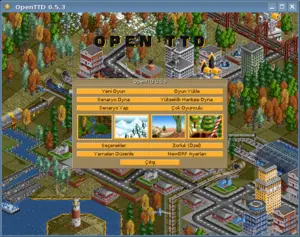

It will still show it has a limit, but you can go higher than it without a problem. I reused some sprites from TTRS4, Polish building set and ISR. There is also a setting, where the stockpile limits are disabled. Workshop have smaller stockpile than modern ones.Īdditionally, cargo consumption rate depends on town size, for example low for town below 200 houses and high for town above 400 houses. To keep ECS style on, stockpiles are provided. Workshop (can be placed in towns above 500 inhabitants) are available from 1900, since petrol station and car dealer (only in large towns) from 19 respectively. These industries must replace houses and have some restrictions (workshop and petrol stations must have at least one road section along SE edge, car dealer need 4 house tiles, industries cannot be clustered). My set is attempt to fix these problems, and provide 3 new 'blackhole' industry: workshop (garages) for vehicles and gasoline, petrol station for gasoline and car dealer for vehicles. Other problems are, that many players are not aware, that vehicles can be transported to tows, and they try tu push them to mines etc, which fills stockpile quickly and provoke misappropriate complains.
#Openttd ecs update#
Such issue force player to constantly update stations to keep their accept scope, it is especially not trivial in case of multiplayer game, when player is absent (not counting potential griefing by bombing these houses). Special houses (for example petrol stations) are rare and are migrating to suburbs when town is growing. Not only special town replacement is needed, but unlike normal town houses (which accept pass, mail and goods 'en masse' without problems), In my opinion, the most vulnerable part of ECS are vehicle and petrol chain, because they rely on special town houses. OpenTTDCoop had a go at ECS, loading all the vectors in a large map.I decided to make small industry add-on for ECS set. This savegame can be found at Media:ECSgrid10.sav.

In this savegame, tourists, passengers, valuables/diamonds, tourist centre and gasoline are left out. To better understand the connections in ECS, ODM made a savegame with a grid containing almost all of the links in a peer-to-peer style. ECS houses only contains hotels, petrol stations and towers (not working).The steel mill does not want Limestone.The power plant does not produce anything, Sulphur does not excist.The potash mine does not excist and neither does potash.Some notes to this scheme (noted from beta 5, released 13 january 2009): It takes a while to understand all these, so it might be handy to check the scheme of all the vectors. There are alot of possible cargo connections in ECS. If an industry produces more than one cargo, the amount of each cargo transported will determine how much is produced the next month. These production levels are influenced by year and amount of cargo transported. Lastly, there are production levels that determine how much is produced. For some production is season dependan Others have requirements on the input cargo, where for example all input cargoes are required to start production. Production in ECS depends on alot of factors.
#Openttd ecs full#
Every industry has a stockpile of a cargo and in general, if that stockpile is full it will stop accepting new cargo. If or not an industry accepts cargo depends mostly on the stockpiles. However, the ECS houses are still very beta and sofar only tourists and petrols stations seem to work. This is a seperate GRF and also a part of the Total Town Replacement set. The special case here is the Town vector, which must be loaded if any ECS is used.Ī part of the town vector is ECS houses, where alot of cargo is transported to. These are:Įvery vector defines a set of industries and a set of cargoes. The ECS industries are subdivided into 7 vectors, or sets.


 0 kommentar(er)
0 kommentar(er)
